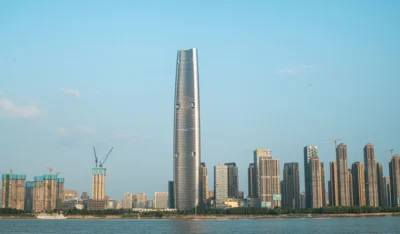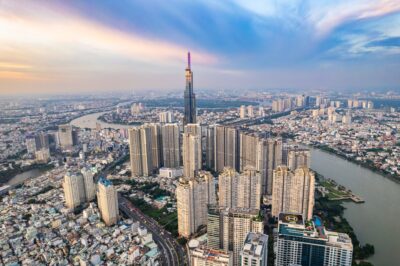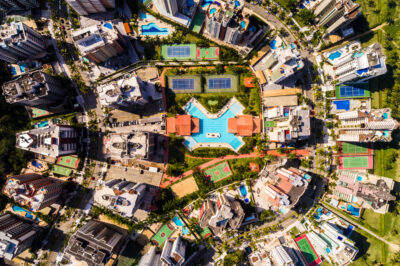News roundup: The pros and cons of investing in co-living in Malaysia, plus other stories

For PropertyGuru’s real estate news roundup, know the pros and cons of investing in co-living in Malaysia. In other headlines, Vietnam’s industrial real estate continues to move up the value chain, attracting investment from manufacturers looking to lower costs and diversify their supply chains. Last but not least, President Ferdinand R. Marcos Jr. vowed to push for investments that would solidify the entire Cebu province as among the leading drivers of the Philippines’ economic growth.
Exploring co-living in Malaysia: A quick guide for investors
Expensive properties in city centres such as Hong Kong and Singapore led to the emergence of co-living as an option for young professionals and students. While it was originally targeted at short- to mid-term foreign residents such as expatriates and international students, co-living arrangements have also attracted long-stay residents, including local students, young professionals, and new families.
The same is happening in Malaysia. Knight Frank’s Commercial Real Estate Investment Sentiment Survey 2020 (CREISS 2020) report highlighted that the co-living concept has been gaining traction, especially among millennials and Generation Z.
Co-living addresses some of the financial concerns of living in the city centre, offering a lifestyle without having to worry about a mortgage. Co-living was impacted during the COVID-19 pandemic as social distancing was difficult when you’ve to share a home with others, some of whom may be strangers or short-term renters.
As the trend of co-living continues to evolve, it’s crucial that investors understand its nuances. Is it a good investment or could it be a pitfall? Before you jump on the bandwagon, iProperty (Malaysia) unpacks the pros and cons of investing in co-living and see if it fits your investment strategy.
Vietnam industrial keeps moving up the value chain
Industrial real estate in Vietnam continues to perform, as it moves up the value chain and attracts manufacturers seeking a skilled, but lower-cost workforce.
The nation’s economy proved resilient in 2023, with GDP growth of just over 5 percent, putting it amongst the best performers in the region, and Standard Chartered expects growth of 6.9 percent this year.
Meanwhile, Savills reports that Vietnam is attracting investment from manufacturers looking to lower costs and diversify their supply chains. Manufacturing salaries have risen in the past five years, but Vietnam is still cheaper than Thailand or Malaysia. Manufacturing wages last year were only one-quarter of those in China.
This wage disparity means that Chinese companies have been amongst the most enthusiastic investors in Vietnam, alongside Singaporean and Japanese firms. Since the signing of an EU-Vietnam free trade agreement in 2020, investment from Europe has also increased, with the Netherlands, France and Germany leading the way.
However, Vietnam manufacturing is not just benefitting from lower wage costs, it is increasingly focused on higher value products. For example, exports of computers and other electronic products have doubled in less than a decade.
“This reflects Vietnam’s move up the value chain as an export-oriented economy for high value-added products,” says John Campbell, head of industrial services at Savills Vietnam.
Philippine President Marcos vows solid investments in Cebu
President Ferdinand R. Marcos Jr. on 27th April vowed to push for the development of investments that will solidify Lapu-Lapu City and the entire Cebu province as among the leading drivers of economic growth in the Philippines.
In his speech during the capsule-laying ceremony of the PHP1.5-billion Mactan Expo Center at Mactan Newton in the city, President Marcos said the government will continue investing in the success of Cebu, according to PNA.
“I am delighted to be here in Mactan Newtown to lead the capsule laying of the Mactan Expo Center, which is a part of the grand township being developed by our friends in Megaworld,” President Marcos said in his speech, referring to the real estate giant.
He said through Megaworld’s pioneering live-work-play township development, it has cemented its role as a crucial player in shaping the Philippines as a hub of progress.
“The Mactan Newtown is the latest testament to their team’s passion, dedication, and brilliance — and new concepts and new ideas on how to develop our country. This township will further strengthen the city’s position as a major destination for key business events, both local and international,” he said.
He said the significant participation of the private sector in nation-building will be matched by government efforts.
“The government, for its part, will also continue to invest in its success, which is why in 2024, the DPWH (Department of Public Works and Highways) is funding about PHP2.9 billion in infrastructure projects here in Lapu-Lapu City alone,” President Marcos said.
The Property Report editors wrote this article. For more information, email: [email protected].
Recommended
Malaysia property market rebounds with foreign interest and growth
The nation’s property market is stirring to life, fuelled by foreign buyers and major infrastructure drives
China’s renewable energy surge redefines housing norms and development
From exporting solar panels to building entire green-powered neighbourhoods, China’s renewable surge is redefining housing norms
Philippine real estate stays resilient amid political turmoil
The arrest of former President Rodrigo Duterte is a huge political plot twist. But the real estate sector in the Philippines is not (yet) flinching
Vietnam housing market poised for growth despite tariff challenges
With possible punitive US tariffs looming over the economy, Vietnam’s otherwise buoyant housing market has entered a cautious stage






